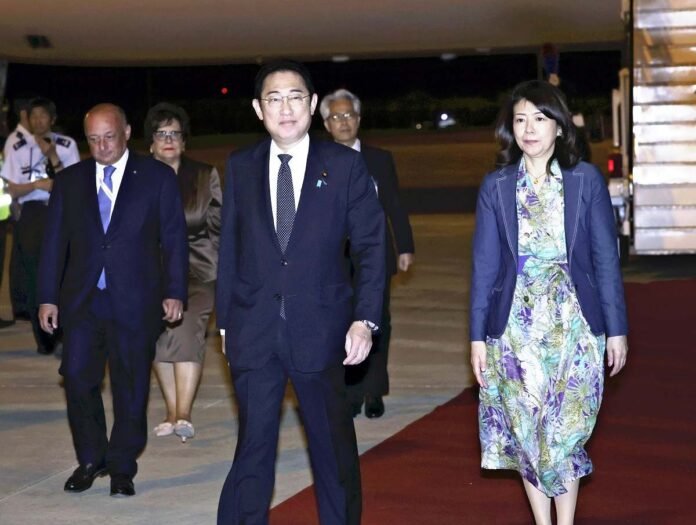Prime Minister Fumio Kishida and his wife Yuko will arrive in Italy on Wednesday to attend the G7 summit.
20:00 JST, June 13, 2024
WASHINGTON – Leaders of the Group of Seven countries will agree on common principles to avoid over-reliance on certain countries to strengthen supply chains for semiconductors and other critical materials, according to a draft leaders’ statement on economic security to be adopted during the Second World War. their current summit, which kicked off in Italy on Thursday.
Based on the principles, G7 countries are expected to work together to develop specific criteria for selecting suppliers of critical materials.
Economic security is one of the issues that will be discussed at the G7 summit.
The design was apparently created in view of the growing dependence on cheap Chinese and other products that dominate the semiconductor and electric vehicle markets. G7 leaders agree that new common standards are needed for government procurement of critical materials to avoid excessive focus on price.
The draft states that the G7 recognizes “that economic resilience requires reducing risks through diversification [of suppliers] and reduction of critical dependencies.” It then identifies the principles to be considered for the sustainable procurement of critical raw materials, including safety, diversification and transparency.
Based on these principles, the G7 says it will formulate strict standards. The draft mentions adequate measures in the field of data and cyber security and labor rights as concrete examples.
Regarding cases where “economic coercion” is used to pressure other countries through trade restrictions, the draft states that the G7 “will work with partners to ensure that attempts or threats to weaponize economic dependencies will fail and [G7 members] stand ready to take action against economic coercion where necessary.”
“We will enhance our collective assessment, preparedness, deterrence and response, and develop new tools where necessary, in accordance with our respective legal systems and international law,” the draft said.
Behind the setting of common standards lies the issue of overproduction by China. The United States and other countries are concerned about the current situation where old-generation semiconductors, electric vehicles and solar panels are flooding the global market at low prices thanks to industrial subsidies from the Chinese government to its own companies.
The administration of US President Joe Biden hopes to increase pressure on China through the G7.
Japan and European countries, for which China is an important trading partner, plan to prevent the elimination of Chinese products. Instead, they aim to reduce relevant risks by reducing their dependence on China for critical materials. They are not expected to explicitly refer to China in the area of economic security.



